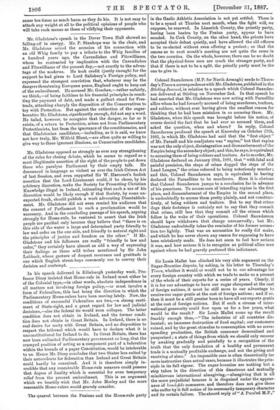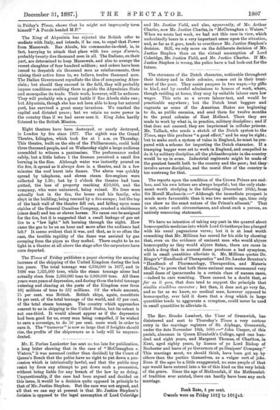Sir Louis Mallet has clinched his very able argument on
the Sager-Bounties dispute, by asking, in his letter to Thursday's Times, whether it would or would not be to our advantage for every foreign country with which we trade to make ns a present of the whole of their exports for a series of years. Clearly, if it is for our advantage to have our sugar cheapened at the cost of foreign nations, it most be still more to our advantage to receive our sugar gratis at the cost of foreign nations; and if so, then it must be a still greater boon to have all our exports gratis at the cost of foreign nations. But if such a stream of inter- national generosity could flow upon us for a few years, what would be the result ? Sir Louis Mallet sums up the result frankly enough thus,—"The industries of all countries dis- located; an immense destruction of fixed capital; our customers ruined, and by the•great stimulus to consumption with no corre- sponding production, the British consumer demoralised and pauperised ; a state of things from which we should only recover by awaking gradually and painfully to a recognition of the truth that the only foundation of a healthy and permanent trade is a mutually profitable exchange, and not the giving and receiving of alms." An impossible case is often theoretically fax more instructive than actual cases, because it illustrates the prin- ciple in its full vigour. The sugar-bounties are nothing but a step taken in the direction of this disastrous and mutually mischievous international almsgiving,—almsgiving that is all the more prejudicial bemuse it is disguised under the appear- ance of bowl-fide commerce, and therefore does not give those who suffer by it full notice of its necessarily temporary character and its certain failure. The absurd reply of "A Puzzled M.P.,"
in Friday's Times, shows that he might not improperly term himself "A Puzzle-headed MP."







































 Previous page
Previous page